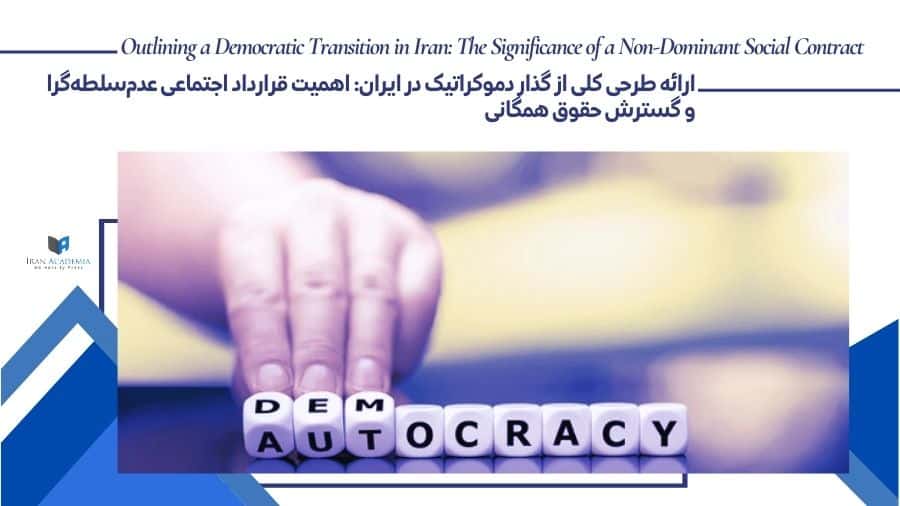Abstract:
Amidst significant upheavals in Iran, the “Woman Life Freedom” movement has emerged as both a call for social justice and an opportunity for Iranians to discuss a new social contract for the country. This paper draws on Philip Pettit’s philosophy of “New Republicanism” and Danielle Allen’s notion of “Justice by Means of Democracy” to propose a foundation for this new social contract. The central idea is “non-domination”—the principle that a society should be constructed so that no individual or group can exert arbitrary power over another.
From this perspective, the “Woman Life Freedom” movement seeks not just the overthrow of the existing regime but the creation of a society where the rights and freedoms of all citizens are equally guaranteed and promoted. Alongside advocating for gender equality including LGBTQ rights, this paper emphasizes the necessity of guaranteeing life with dignity, the freedom of religious practice, and political autonomy for Iran’s diverse regions in a new Iran. Achieving this requires a new social contract based on dialogue and collective participation, forming the bedrock for a new Iranian society and political regime.
This paper is structured as follows: It begins by defining what a social contract entails and how it differs from a constitution, arguing that constitutions often fail without a preceding social contract. It illustrates this by reviewing constitutional developments in Iran up to the 1979 revolution. The paper then explores how a new social contract can be formulated for Iran and outlines its primary principles. Finally, it discusses the concrete political, social, and economic structures that this new social contract would establish in a post-Islamic Iran.


